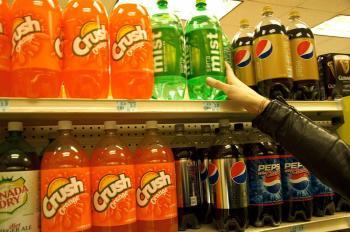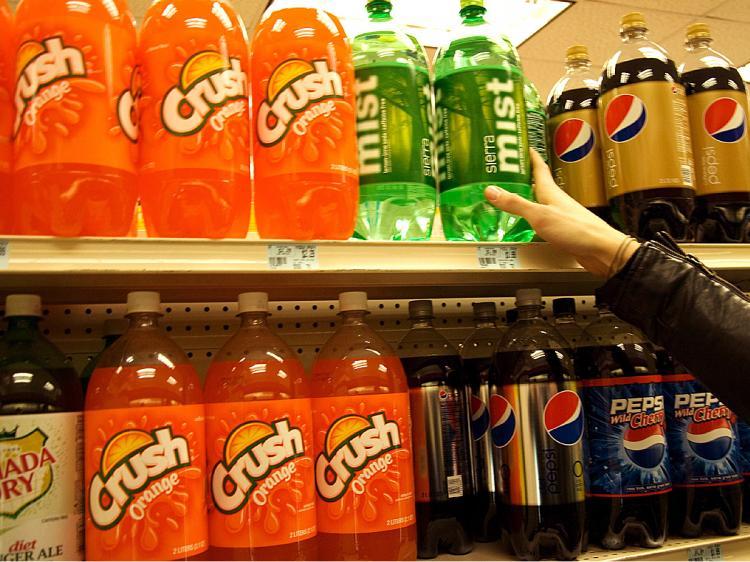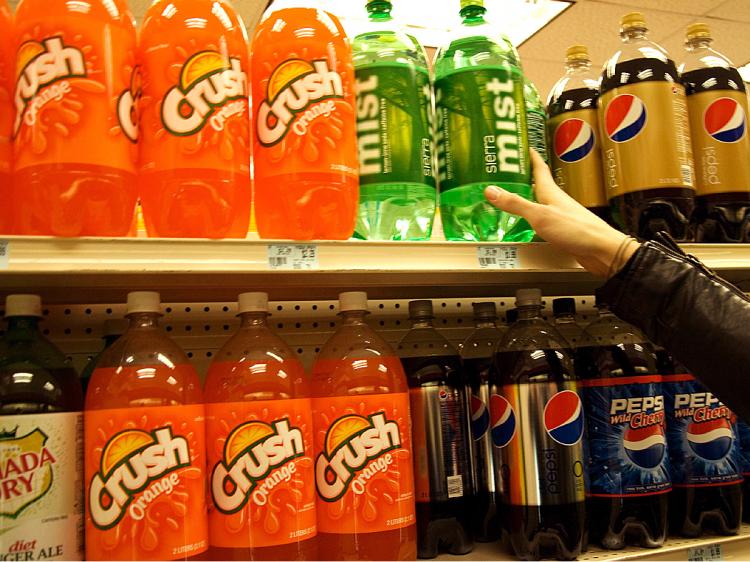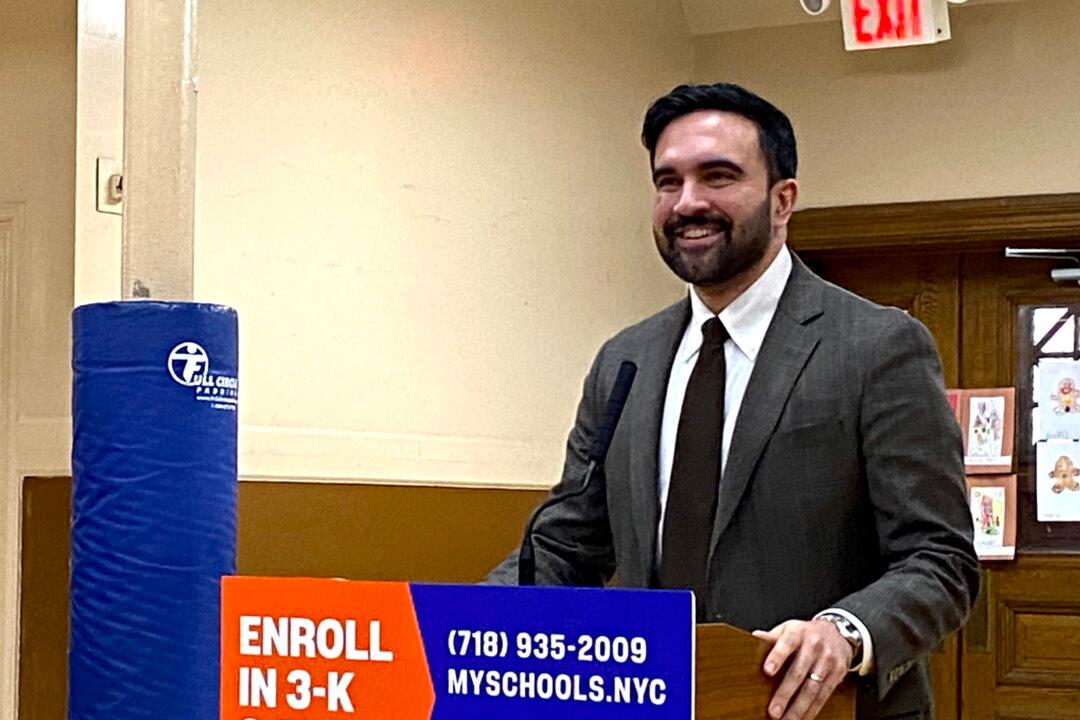NEW YORK—A national debate over an excise tax on sugary drinks is polarizing state-level politicians and advocacy organizations. Those in favor of the tax, which is determined state-by-state, say it will help curb obesity and generate badly needed revenue.
There are 33 states that have a sales tax on soft drinks, but some say an excise tax is needed to discourage people from buying soda.
According to Washington state Gov. Christine Gregoire, an excise tax of 5 cents per 12 ounces would raise $93.6 million for the state in the coming two years.
In a Feb. 2010 letter to the Washington state Legislature, Gregoire justified her position by citing risks to the public.
“Carbonated beverages are a discretionary purchase,” said Gregoire in the letter. “Their consumption leads to growing public health issues, including childhood obesity and diabetes.”
On the other side of the country in New York state, Gov. David Paterson’s proposed soda tax in his January budget proposal is being met with opposition. According to the Center for Consumer Freedom, nine Democrats and two Republicans in the state Senate are against his proposed soda tax.
The governors and others in favor of the tax have research to back up their claims that something needs to be done to curb the soda-drinking habits of Americans.
In an October 2009 article in the New England Journal of Medicine, drinking sugar-sweetened beverages is linked to risks for obesity, diabetes, and heart disease. The article concludes that a “compelling case can be made for the need for reduced consumption of these beverages.”
Sugar-sweetened beverages are defined as beverages that contain added, natural sweeteners such as sucrose (table sugar), high-fructose corn syrup, or fruit-juice concentrates. They all have similar metabolic effects.
Many other proponents of a soda excise tax, which includes Philadelphia Mayor Michael Nutter and governor of Colorado Bill Ritter, say that drinking less soda would help fight obesity.
Opponents of the tax say there is not enough scientific evidence to prove health benefits claims. There are also possible downsides for businesses.
The former mayor of Philadelphia, John F. Street has been a vocal critic of the tax, saying it would be a financial punishment to the less advantaged.
“I just don’t know how you can put a 70 percent tax on a two-liter bottle of Coke,” said Street in a March 7 Philadelphia Inquirer article. “It’s the poor people who are going to pay the sugar tax. Then you put a trash tax on top. I think that is very problematic.”
The Center for Consumer Freedom says that the vice president of the Coca Cola Bottling Company of Washington, Bob Slack, estimates his company would lose 25 percent to 30 percent of its workforce if the Gov. Gregoire soda tax is imposed.
Similarly, the owner of the Washington State-based Bremerton Bottling Company, Carole Dawson, says the tax would negatively impact the quality of jobs she could offer and depress sales of her product.
An organization that represents the beverage industry, The American Beverage Association (ABA), said a soda tax would not reduce obesity.
The ABA cited a National Cancer Institute report which found that soda accounts for only 5.5 percent of a person’s caloric intake, which is not a significant contributor to obesity.
There are 33 states that have a sales tax on soft drinks, but some say an excise tax is needed to discourage people from buying soda.
According to Washington state Gov. Christine Gregoire, an excise tax of 5 cents per 12 ounces would raise $93.6 million for the state in the coming two years.
In a Feb. 2010 letter to the Washington state Legislature, Gregoire justified her position by citing risks to the public.
“Carbonated beverages are a discretionary purchase,” said Gregoire in the letter. “Their consumption leads to growing public health issues, including childhood obesity and diabetes.”
On the other side of the country in New York state, Gov. David Paterson’s proposed soda tax in his January budget proposal is being met with opposition. According to the Center for Consumer Freedom, nine Democrats and two Republicans in the state Senate are against his proposed soda tax.
The governors and others in favor of the tax have research to back up their claims that something needs to be done to curb the soda-drinking habits of Americans.
In an October 2009 article in the New England Journal of Medicine, drinking sugar-sweetened beverages is linked to risks for obesity, diabetes, and heart disease. The article concludes that a “compelling case can be made for the need for reduced consumption of these beverages.”
Sugar-sweetened beverages are defined as beverages that contain added, natural sweeteners such as sucrose (table sugar), high-fructose corn syrup, or fruit-juice concentrates. They all have similar metabolic effects.
Many other proponents of a soda excise tax, which includes Philadelphia Mayor Michael Nutter and governor of Colorado Bill Ritter, say that drinking less soda would help fight obesity.
Opponents of the tax say there is not enough scientific evidence to prove health benefits claims. There are also possible downsides for businesses.
The former mayor of Philadelphia, John F. Street has been a vocal critic of the tax, saying it would be a financial punishment to the less advantaged.
“I just don’t know how you can put a 70 percent tax on a two-liter bottle of Coke,” said Street in a March 7 Philadelphia Inquirer article. “It’s the poor people who are going to pay the sugar tax. Then you put a trash tax on top. I think that is very problematic.”
The Center for Consumer Freedom says that the vice president of the Coca Cola Bottling Company of Washington, Bob Slack, estimates his company would lose 25 percent to 30 percent of its workforce if the Gov. Gregoire soda tax is imposed.
Similarly, the owner of the Washington State-based Bremerton Bottling Company, Carole Dawson, says the tax would negatively impact the quality of jobs she could offer and depress sales of her product.
An organization that represents the beverage industry, The American Beverage Association (ABA), said a soda tax would not reduce obesity.
The ABA cited a National Cancer Institute report which found that soda accounts for only 5.5 percent of a person’s caloric intake, which is not a significant contributor to obesity.






